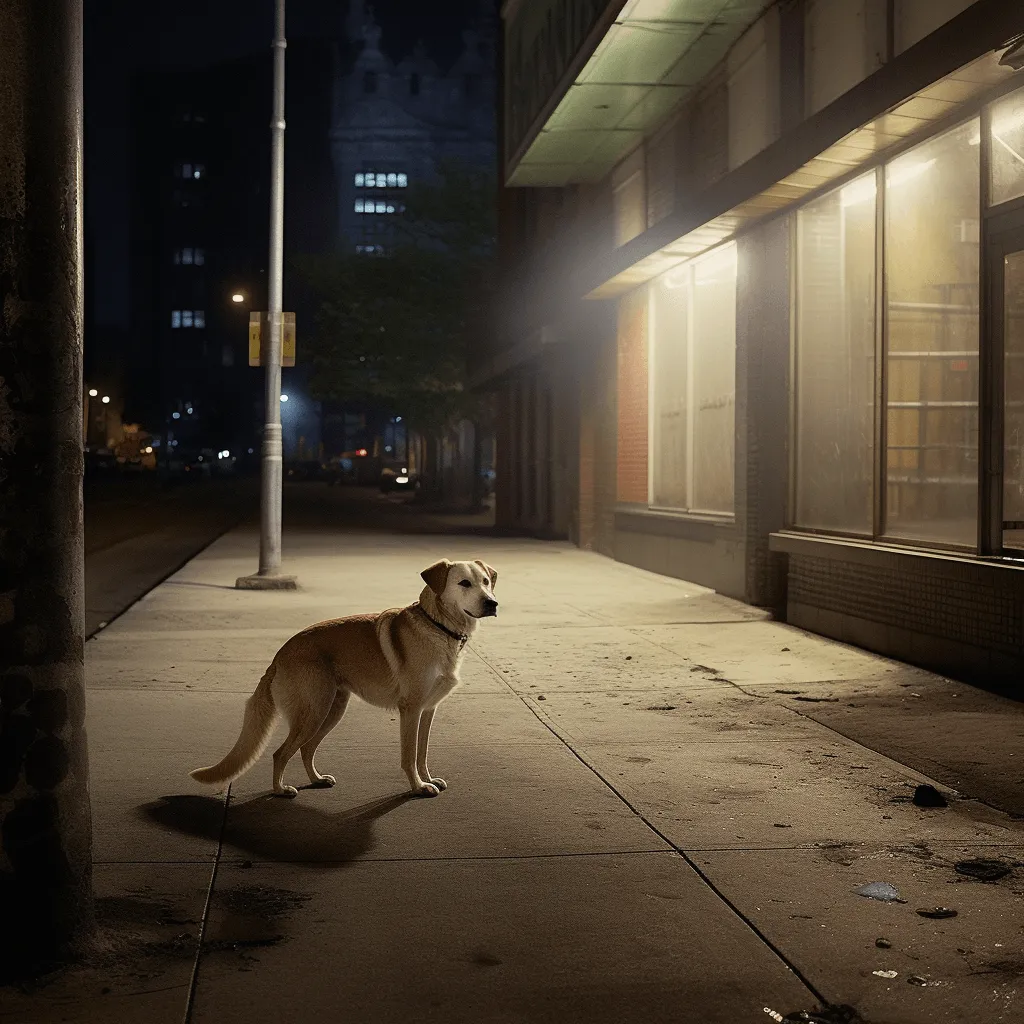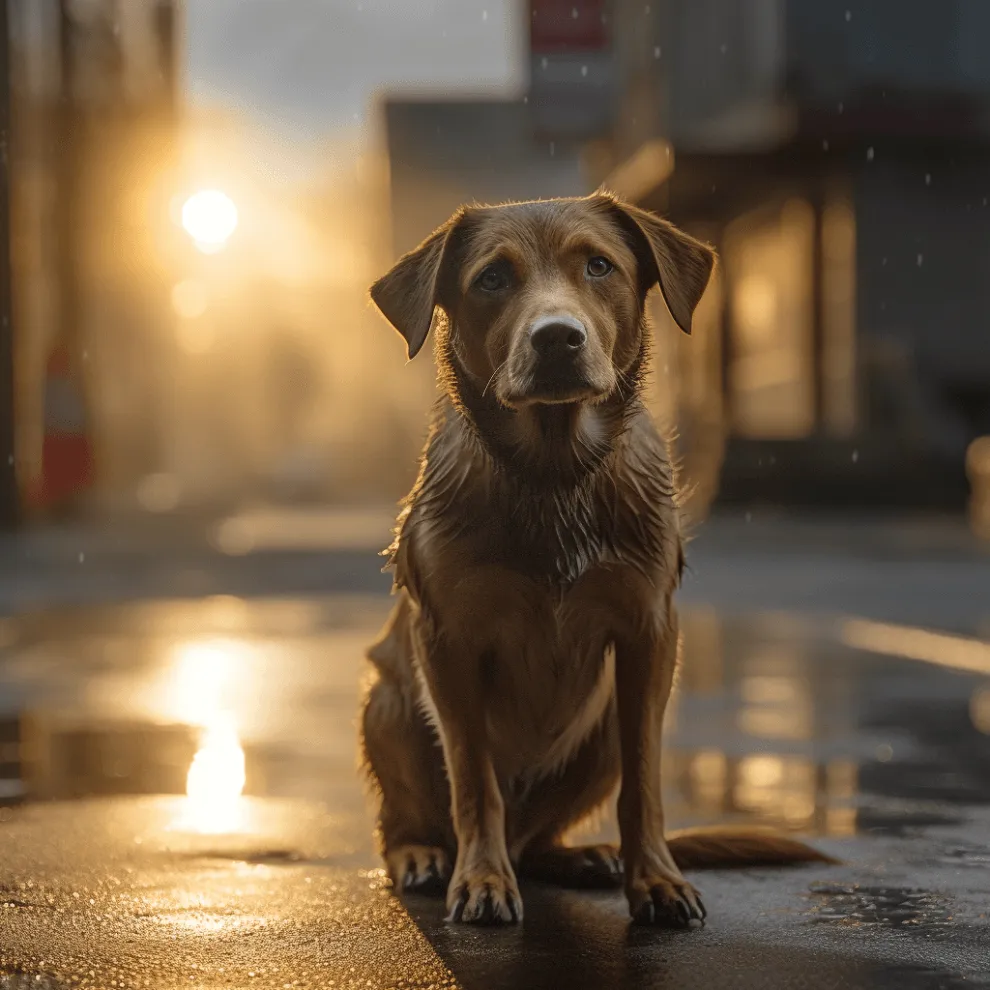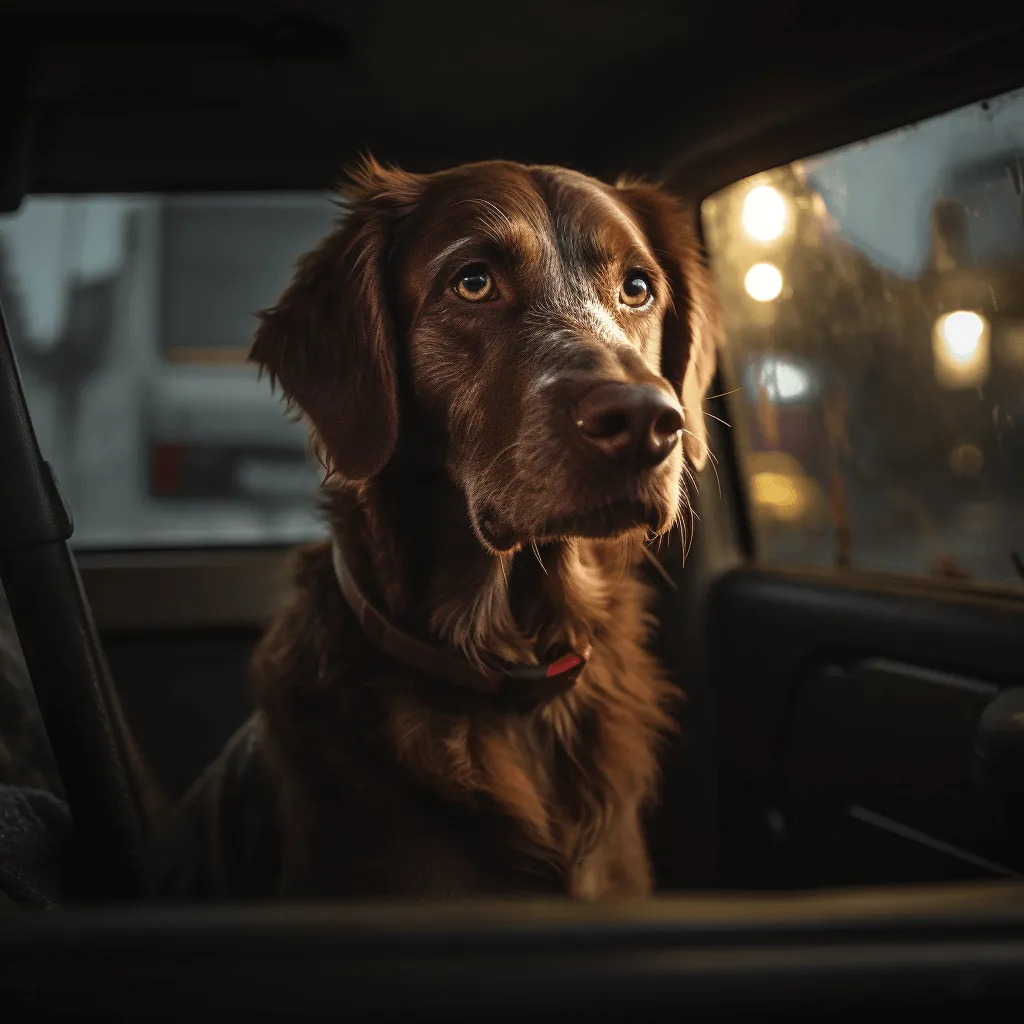How To Tell If A Dog Is Lost
To determine if a dog is lost, observe its behavior and physical appearance. A dog without identification tags or a collar is more likely to be lost. Lost dogs may have signs of confusion, disorientation, anxiety, or distress. Additionally, if the dog is in poor physical condition, has matted fur or visible injuries, it could indicate that it has been separated from its owner. If you encounter a dog displaying these signs, it is important to take appropriate steps to help reunite it with its owner or find it a safe haven.

What To Do When You Find A Lost Dog
When you come across a lost dog, it's important to take immediate action to help ensure its safety and assist in reuniting it with its owner.
How To Catch Or Trap A Lost Dog
Start by creating a calm and safe environment, avoiding sudden movements or loud noises that might scare the dog away. Use tasty food or treats to lure the dog towards you, building trust and cooperation gradually. Additionally, you can use special traps designed to capture lost dogs in a humane way. Place these traps in strategic spots with enticing bait to increase the chances of successfully trapping the dog.
Keeping A Lost Dog Safe
When you have found a lost dog, it is crucial to ensure its safety while you work on reuniting it with its owner or finding it a suitable temporary solution. First and foremost, provide a safe and secure environment for the lost dog. Designate a quiet area in your home or a confined space with a sturdy enclosure where the dog can stay temporarily. Provide comfortable bedding and fresh water. If the dog has not been properly assessed for behavior and temperament, it's important to keep it separate from other pets or children until its behavior is better understood.
Who To Call When You Find A Lost Dog
When you find a lost dog, there are two primary contacts you should reach out to. First, contact your local animal control or municipal animal services department. Provide them with a detailed description of the dog and its location.
Secondly, contact nearby animal shelters. These shelters often serve as central hubs for lost and found animals. They can help match the description of the dog with any reported missing pets and may have resources available to help locate the owner.

Take A Photo Of The Dog You Found
Taking a clear and detailed photograph of the dog you have found can be immensely helpful in spreading the word about the lost pet. A photograph provides a visual reference that can be easily shared across various platforms, including social media, online forums, and community groups. Sharing a photo increases the chances of reaching the dog's owner, as they may recognize their beloved pet and contact you for further information.
Check For ID
Checking for identification on the lost dog can provide valuable information about its owner, making the process of reuniting them much easier. Start by examining the dog's collar for any tags or identification badges. These tags often include the owner's contact information, such as their phone number or address. If you find ID tags, note down the details and contact the owner immediately.
In addition to checking the collar, it is also important to look for a microchip. A microchip is a small electronic device implanted under the dog's skin, usually between the shoulder blades. Microchips contain a unique identification number that can be scanned using a special device. Contact a local veterinarian or animal shelter to have the dog scanned for a microchip. If a microchip is present, the scanner will display the owner's contact information registered with the microchip database. This enables you to quickly and directly reach out to the owner, increasing the chances of a successful reunion.
Take Pets With No ID To An Animal Shelter
Animal shelters are equipped to provide food, shelter, and medical care to stray or lost animals. They have trained staff who can assess the pet's health, conduct a thorough search for any hidden identification, and scan for a microchip. By bringing the pet to a shelter, you increase the chances of the owner finding their beloved companion, as they are likely to check with local shelters first when searching for their lost pet.

Alerting The Lost Dog’s Owner
To increase the chances of alerting the lost dog's owner, actively spread the word within the local community. Create informative posters that include a clear photo of the dog, a brief description, and your contact details. Add specific information about where and when the dog was found. Put these posters in public areas like community bulletin boards, local shops, veterinary clinics, and pet-related businesses. Share the information on social media platforms and local online forums dedicated to lost and found pets. This multi-channel approach ensures that the information reaches a wider audience.
Knock On Neighbors' Doors
When you find a lost dog, it's possible that the owner lives nearby. By knocking on neighbors' doors, you can gather valuable information and potentially locate the owner. Start by going door-to-door in the immediate vicinity where you found the dog. Introduce yourself, explain that you found a lost dog, and provide a description of the dog. Ask if they recognize the dog or if they are aware of any missing pets in the area. Neighbors may have seen the dog wandering or know of someone in the neighborhood who recently lost their pet. Their knowledge and insights can greatly aid in the efforts to reunite the dog with its owner.
Get The Pet Scanned For A Microchip
When you find a lost pet, taking them to a veterinarian or an animal shelter to get scanned for a microchip is crucial. Microchip scanning is a reliable method of identification because collars and tags can become lost or removed. Even if the pet's appearance has changed or if they were found in a different area from where they went missing, a microchip scan can provide crucial information to reunite them with their owner.
Post About The Found Dog Online Or In Local Papers
Posting about the found dog online or in local papers is a proactive and effective way to increase the chances of reuniting the dog with its owner. Online platforms such as social media, community forums, and dedicated lost and found pet websites provide a wide reach and allow for quick dissemination of information. Additionally, placing an advertisement or notice in local papers enables you to reach individuals who may not be actively engaged online or part of social media communities. By utilizing both online and offline channels, you maximize the visibility of the found dog and create more opportunities for a successful reunion.

Can You Keep A Dog That You Found
When you find a lost dog, the question of whether you can keep it is a complex one. It involves considering both legal and ethical factors. From a legal perspective, the laws regarding found dogs differ from one jurisdiction to another. Some areas require you to report the found dog to local authorities, such as animal control or the police, and follow specific procedures to attempt to locate the owner. It is important to understand and comply with the legal requirements in your area to avoid any potential legal consequences. Consulting local authorities or legal professionals can provide clarity on the specific steps you need to take.
On the ethical front, it is crucial to consider the emotional impact of keeping a found dog without making sincere efforts to reunite them with their owner. Dogs are cherished companions, and their owners may be distraught and actively searching for them. By prioritizing the dog's welfare and making genuine attempts to find the owner, such as posting notices, contacting local shelters, and scanning for a microchip, you increase the chances of a successful reunion. Acting responsibly and with empathy towards both the dog and its owner allows for a more compassionate approach that aligns with the best interests of everyone involved.
Finding a lost dog's owner becomes easier with Pet911. Leave a listing on the Pet911 website and check the catalogue of missing dogs to see if there is a listing from the owner stating that their dog is lost. By doing this, you can help the owner and the lost dog reunite more quickly.

